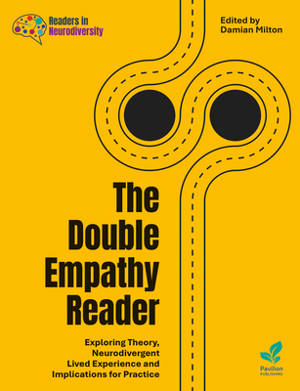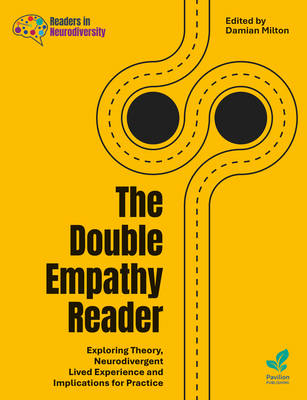
- Afhalen na 1 uur in een winkel met voorraad
- Gratis thuislevering in België vanaf € 30
- Ruim aanbod met 7 miljoen producten
- Afhalen na 1 uur in een winkel met voorraad
- Gratis thuislevering in België vanaf € 30
- Ruim aanbod met 7 miljoen producten
Zoeken
The Double Empathy Reader
Exploring Theory, Neurodivergent Lived Experience and Implications for Practice
Damian Milton
Paperback | Engels
€ 88,95
+ 177 punten
Omschrijving
The Double Empathy Reader brings together a substantial collection of work from leading researchers, theorists and practitioners, with first-hand accounts of neurodivergent people, to explore this growing area of study within the neurodiversity movement. This comprehensive handbook explores Damian Milton's ' double empathy problem' the breakdown in mutual understanding that can happen between any two people yet is more likely to occur when people of differing dispositions attempt to interact. It challenges the traditional view that in exchanges between autistic and non-autistic people, this breakdown was simply the result of autistic people being inherently deficient in empathy. Thirteen years after the theory was first published, The Double Empathy Reader brings together an important volume of work to explore the research that has developed in that time as well as the many gaps in our understanding that still exist, with the aim to understand the potential of this theory to aid a reframing of autism itself and the radical change this could bring when considering best practice models for supporting autistic people in different settings.
Specificaties
Betrokkenen
- Auteur(s):
- Uitgeverij:
Inhoud
- Aantal bladzijden:
- 520
- Taal:
- Engels
Eigenschappen
- Productcode (EAN):
- 9781803882956
- Verschijningsdatum:
- 18/08/2025
- Uitvoering:
- Paperback
- Formaat:
- Trade paperback (VS)
- Afmetingen:
- 197 mm x 292 mm
- Gewicht:
- 974 g

Alleen bij Standaard Boekhandel
+ 177 punten op je klantenkaart van Standaard Boekhandel
Beoordelingen
We publiceren alleen reviews die voldoen aan de voorwaarden voor reviews. Bekijk onze voorwaarden voor reviews.











